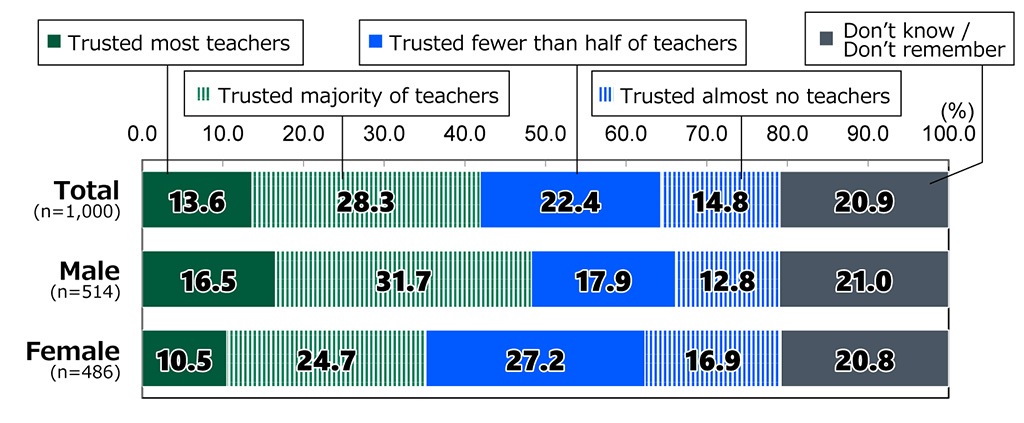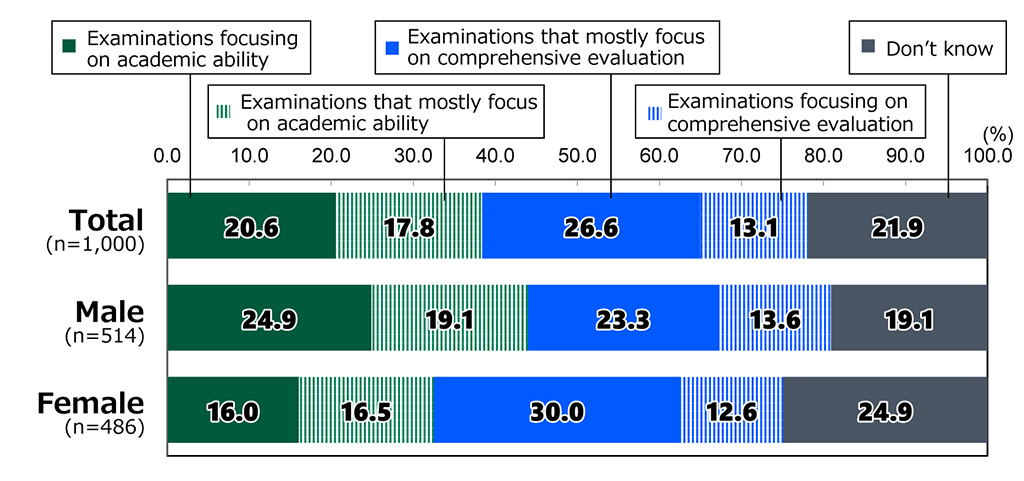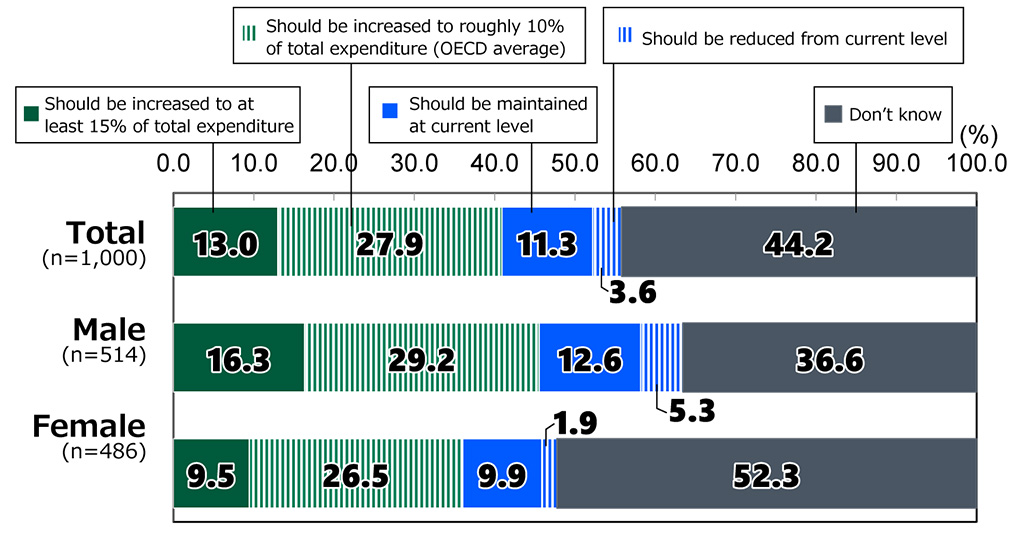Awareness Survey of 18-Year-Olds – EducationResults of 61st installment announced – 60% approve of university tuition being free, and half want more online higher education
The 61st installment of the Awareness Survey of 18-Year-Olds, launched by The Nippon Foundation in October 2018, was carried out on January 19-22 to gauge young people’s views on a range of issues related to education in Japan, including their experiences with compulsory education, government spending on education, and new initiatives being carried out by universities in response to Japan’s declining birthrate.
With regard to public spending on primary through tertiary education, currently 7.8% of Japan’s total government expenditure (general account) goes toward education, and roughly 40% of respondents replied that this should be increased to either 15% or more or to at least the 10.6% average for member countries of the Organization for Economic Cooperation and Development (OECD), while close to 60% replied that university education should be tuition-free.
In terms of new trends at universities in response to Japan’s falling birthrate, a majority of respondents said that there should be an increase in online universities that do not require commuting and that efforts to attract exchange students from abroad should be strengthened and roughly half replied that there should be more public universities, while fewer than one in four approved of a reduction in universities’ intake quotas (government-set limits on the number of students a university may accept).
On the subject of compulsory education, roughly 30% of respondents replied that “Acquiring basic knowledge” was the most-stressed aspect based on their own experience, and when asked what they wished they had learned more about, the top answer – at roughly 20% – was “financial literacy” to acquire the basic knowledge and skills required to manage their personal finances. In terms of trust in their teachers, close to 40% of all respondents replied either that they trusted “Fewer than half” of their teachers or “Almost no teachers,” and for female respondents alone this figure increased to more than 40%.
The survey also asked these young adults about new measures to secure funds for increased public spending on education and Japan’s system for university admissions.
Highlights of the 61st Awareness Survey of 18-Year-Olds – Education
- Topics respondents wanted to learn more about during compulsory education
- Basic knowledge and skills required to manage personal finances (financial literacy) – 20.5%
- Ability to communicate with people around me – 17.7%
- Awareness, approach, knowledge, and ability to live in international society – 17.7%
- *(Up to three answers allowed)
- View toward public spending on education
- Should be increased – 40.9%
- Should be maintained – 11.3%
- Should be reduced – 3.6%
- Don’t know – 44.2%
- *“Should be increased” is the total of “Should be increased to at least 15% of total general account expenditure” and “Should be increased to roughly 10% (OECD average).”
Survey Excerpts



About the Awareness Survey of 18-Year-Olds
Revisions to Japan’s Civil Code lowering the age of adulthood to 18 for a range of activities, including voting, took effect in April 2022, making it even more important to understand and record the awareness of the 18-year-olds who represent Japan’s next generation. With this in mind, in October 2018 The Nippon Foundation launched the Awareness Survey of 18-Year-Olds as an ongoing survey of young men and women across Japan aged around 18, to survey their values, attitudes toward politics and elections, understanding of social issues, and other current themes on an ongoing basis.
Notes:
- From the 13th survey, the number of respondents, comprising men and women aged 17 to 19, has been increased to 1,000 from 800.
- With the exception of the 20th and 46th installments, “Awareness Survey of Society and Country,” all surveys cover respondents in Japan only.
Contact
Public Relations Team
The Nippon Foundation
- Email: cc@ps.nippon-foundation.or.jp



